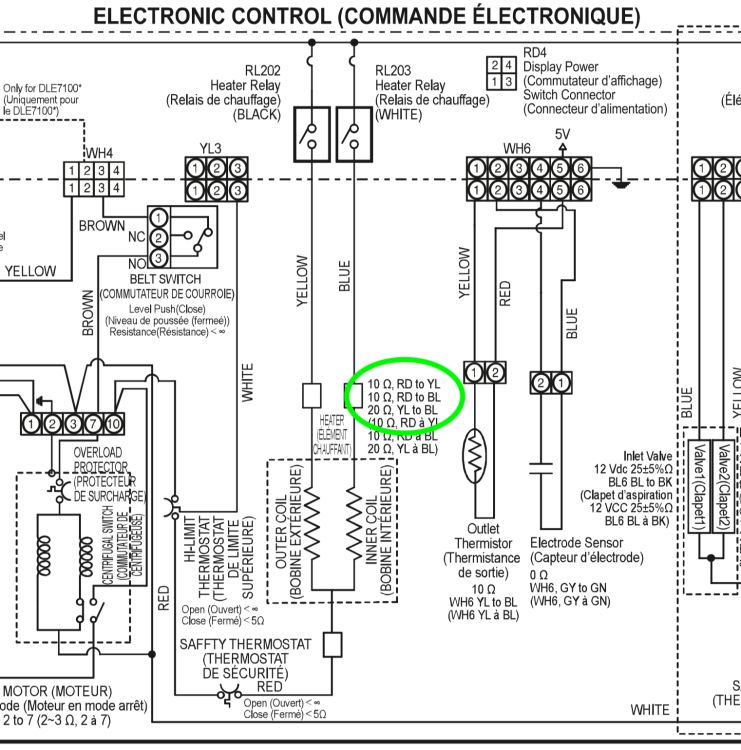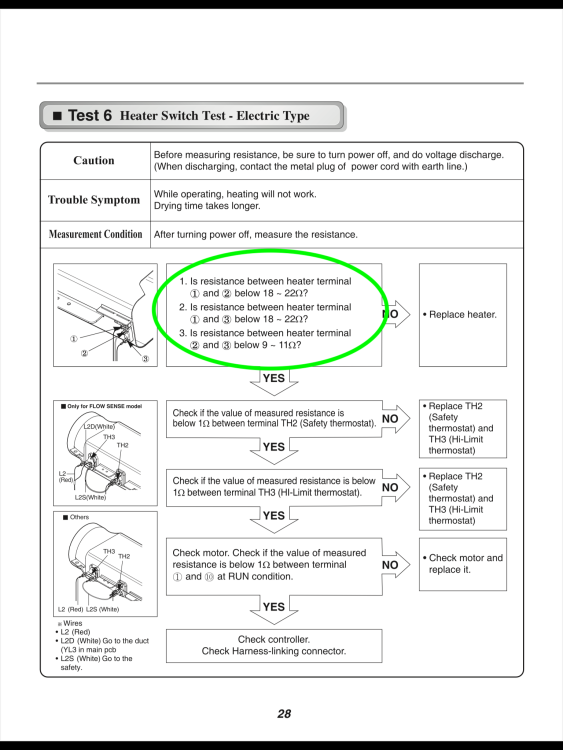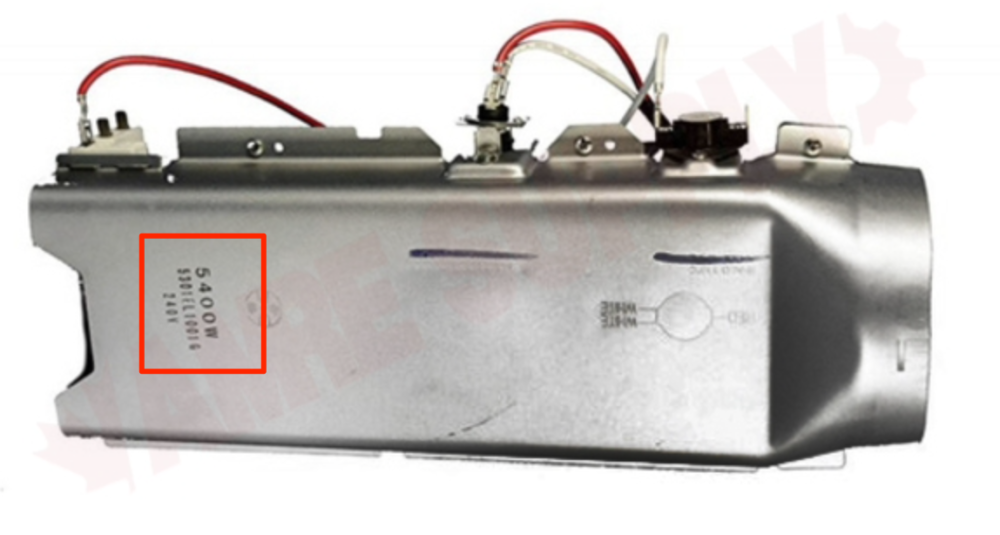Dealing with Bad Heater Specs on an LG Dryer
Imagine you're in this situation: you're trying to do some ohms testing on the heater of an LG electric dryer. You're reading 21 ohms across a single coil, and 42 ohms through both coils. But when you look at the spec on the schematic, you're seeing almost exactly half that:
Weird. Maybe the heater is out of spec, but that's a weird discrepancy. And it's bizarre that we're reading double the specs given.
Can we get a second opinion? You look elsewhere in the manual, and you find another set of ohm specs that are even more confusing:
What are these specs even saying? Are they implying that reading across a single coil would be 22 ohms, and reading across both would somehow be 11?
We've got a couple of issues here. A measurement is meaningless unless you have a reliable set of specifications to compare it to. And so far, our specs seem a little suspect. This is unfortunately common, especially with LG and Samsung. Easy for things to get mixed up in the transition from Korean to English.
Another problem is that we're doing an ohms test. Sometimes you have to do these, but they're one of the least reliable and informative types of tests you can do. Is there a more clever way we can go about this?
If we look for a different kind of heater spec elsewhere in the manual, we do find this wattage spec:
Okay, that's something. But do we know it's correct? After all, we've been suspicious of all the specs in this manual so far. Who's to say this one is any better?
The most authoritative, canonical spec you can find is the one printed on the part itself. And in this age of the Internet, we don't need to tear apart the machine to find that. We can just do a quick lookup at our favorite parts site!
All right, now we're cooking. We've confirmed that we have a solid spec to work with: 5400 watts. With this, we could just do an amp reading on the heater circuit to check if it's operating within spec -- no unplugging and ohm-checking needed! Converting from amps to watts is easy with everyone's favorite Ohm's law equation (and my favorite dessert):
P = I x E
But if we really need to do that ohms test, this enables us to figure out what the proper ohm spec for that heater should be using another Ohm's law equation:
R=E^2/P = 240^2/5400 = 10.6 ohms
Now, that resistance value is the equivalent resistance of both heater coils. For those not in the know, when you have two parallel loads, the electrons in the circuit don't see their resistance as additive. I can skip over the math for you by simply giving you a rule of thumb that's close enough for most techs' purposes: the equivalent resistance of two IDENTICAL loads is equal to half the resistance of one of those loads.
What does that mean for us? Doubling the equivalent resistance we calculated gets us 21 ohms as the resistance of a single coil, and 42 ohms as the resistance of both coils in series. Our initial measurements were exactly in spec. We just got thrown for a loop by bad specs and poorly written dummy directions.
Besides, if our interest was just in checking that the heater was in spec, we could have done that with so much less hassle by doing a simple amps measurement. Avoid ohms when you can! They're more trouble than they're worth.
Want to learn how to understand electricity, make meaningful measurements, and read schematics with confidence? Take the Core Appliance Repair Training course today over at the Master Samurai Tech Academy.
-
.png) 9
9

.png.9012a87f3d9d47f1728530e9414b5964.png)






4 Comments
Recommended Comments